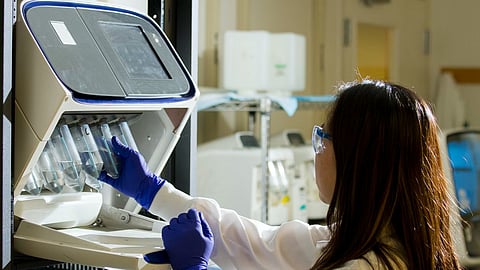

A discovery of a mutation in the gene ACTA2 has given researchers, led by Dianna Milewicz, MD, PhD, with UTHealth Houston, insight into understanding the cause of a rare and progressive problem with arteries in the brain and a cause of strokes in young children, called moyamoya disease.
The findings were published today in Nature Cardiovascular Research.
Moyamoya disease is a condition where the arteries going through the neck and into the brain become blocked right when the arteries enter the brain. Moyamoya disease can lead to strokes and seizures. Children only a few months old can suffer a stroke due to the disease. Current treatments are limited to medications to reduce the risk of stroke and surgery to open or bypass blocked arteries.
Researchers identified that a change in the gene called ACTA2 caused children to have moyamoya disease and strokes starting shortly after birth, a condition called Smooth Muscle Dysfunction Syndrome, and have been working to figure out how and why this ACTA2 change causes moyamoya disease and strokes. Previous research led by Milewicz identified that ACTA2 mutations are the cause of Smooth Muscle Dysfunction Syndrome. In addition to moyamoya disease, this condition causes dysfunction of smooth muscle cells throughout the body.
ACTA2 is found in the smooth muscle cells, which line the arteries and allow them to contract to control blood pressure and flow. Using model systems, including cells from patients with the ACTA2 variant that causes moyamoya disease, Milewicz and her team found that a mutation in ACTA2 causes the cells in the walls of the arteries in the brain to not differentiate properly, an essential component of vascular development.
The result is that the cells with the ACTA2 variant continue to grow out of control and move into the inside of the artery, which may be the cause of blockages in the arteries.
Researchers will continue to focus on exploiting the mechanism of disease that they identified to find new treatment options for children with moyamoya disease.
(Newswise/AM)
